Ursus americanus are extremely powerful omnivores which strike fear in the hearts of any outdoor enthusiast who has encountered one. These ultimate predators are true survivors – adaptable and intelligent and possess the strength to take down a bison. The black bear, for the very fact that they possess the power to kill a human, warrant the full respect of those who spend time camping in the Ontario Great Outdoors. Wilderness camping can be a thrilling and safe outdoor activity provided a few precautions are taken.
First off, maintaining a clean and tidy campsite will certainly lessen your chances of a bear encounter.
Always keep food stored away from sleeping areas and limit any scraps around your site to lower the chance of a bruin stopping-by for a visit. Unfortunately, predatory male bears are just as likely to pursue the campers themselves, even if scant little food scraps are present. Tent campers run the greatest risk of being effected by predatory males, with no protective walls to shield them from a marauding bear.
Be smart and be vigilant when camping in bear country!
The best way to avoid bear encounters this summer, while camping in beautiful Ontario, is to understand bear behavior and situations that may increase the likelihood of being perceived as prey. If you cannot avoid high risk situations and you thoroughly enjoy wilderness camping as I do, it is suggested that you bring a means of protection with you which, at a very minimum, is a powerful can of bear repellent. Canadian-approved bear ‘pepper spray’ may be purchased at many outdoor specialty stores throughout the province such as; BassPro, Sail and LeBaron. It is imperative that you are fully prepared to use every means possible of protecting yourself and your camping party, on the outside chance that encounter a bear. Learn how to properly use bear spray.
For those who spend time camping in Ontario bear country, the possibility of a black bear encounter should always be in the back of your mind. Whether tenting, using a pop-up tent trailer or a hard-top, it is important to never underestimate the possibility that a predatory beast may be lurking nearby.
Case in point: The two campers attacked and killed in Algonquin Park in 1991 were, in fact, avid tenters and though they did everything right when it came to bear prevention, they still became victims in predatory attack.
While returning to their campsite with a supply of food, a large predatory male bear confronted the campers. The two were taken by surprise, unarmed with no way of protecting themselves. Both campers were killed and when their remains were later discovered, their food supply bag – containing steaks and hamburger – was found to be untouched by the bear. In a case such as this you may do everything to ensure your campsite is ‘bear proof’ and still become a victim. However, it is also important to keep in mind that such an incident is almost unheard of in more populated areas of the province, and is quite rare even in remote wilderness areas.
Understanding the ‘gender of bear’ in any given situation is crucial and could potentially save your life. A female bear with cubs does not attack in the same manner as a predatory male bear would. Should you be approached aggressively in your campsite by a female with cubs, it is suggested that you fall to the ground, curl-up; covering the sides of your head, roll into a ball with your legs drawn tightly to your chest, your hands clasped tightly behind your neck. Most times a female bear will cease the attack when you play dead.
If you have identified an aggressive bear to be a lone male, your strategy is completely different and playing dead is no longer an option. Your best approach is to intimidate the bear and let him believe that you are not a pushover or scared in any way. Be loud and boisterous and make yourself appear larger than you while holding your jacket over your head. Make loud noises, bang sticks, yell and scream. Make no mistake about it, research has proven that a bear is fully-aware you are human and a recent study of bear attacks from 1900 – 2009 has proven that 92% of all fatal bear attacks in Canada is by male bears.
While camping in bear country, in a nutshell, we must be aware that these creatures lurk in the dark forests of our province, and we must treat them with respect and understanding. Although negative bear encounters while camping are extremely rare, they do occur. Knowledge truly is power and knowing how to safely spend time in bear country this summer, makes for an all-round more enjoyable camping experience. Be safe and continue to enjoy camping in the more remote areas of our beautiful province.
By Jeff Morrison
Growing up in the Laurentian Mountains of Quebec, Jeff was introduced to the outdoors at a young age; falling in love with it instantly. Over the years, he has made the Great Outdoors and conservation a focal point for his life’s work. Known by his readers as The Outdoors Guy, Jeff’s Blog on the Ottawa Sun is host to upwards of 10,000 visitors per month.
Editors note: All the articles in our site are solely the writer’s opinion on the subject matter and is not to be taken as an official information. For more information, refer to Ontario Parks’ Camping Safety page. This article is simply intended to remind ourselves to be ‘Bear-wise’ and is not to be taken as a deterrent to our camping enthusiasm. Happy Camping!

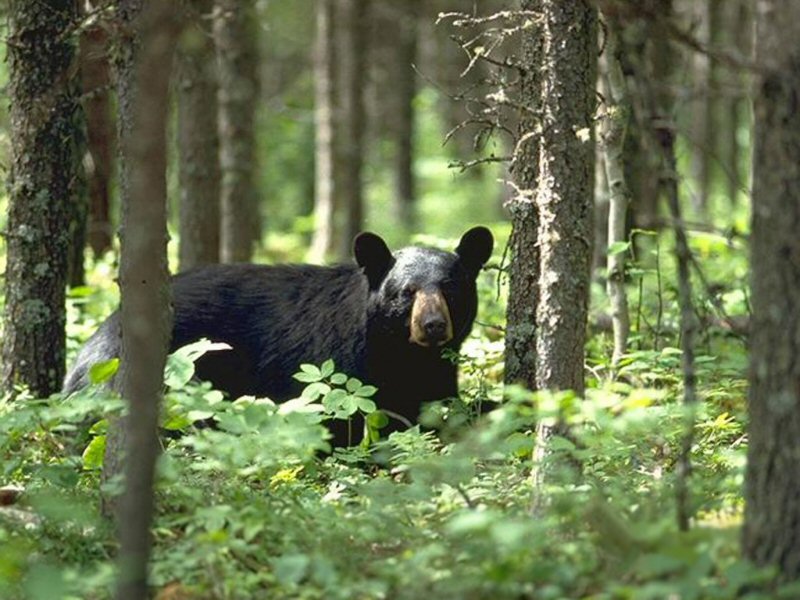
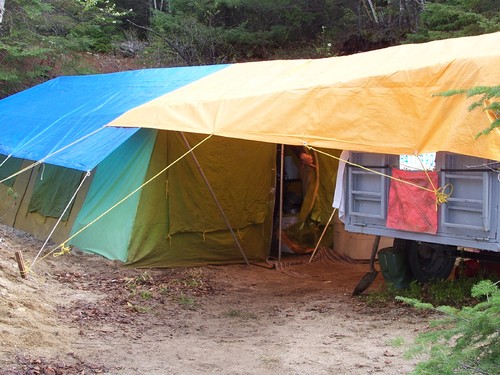
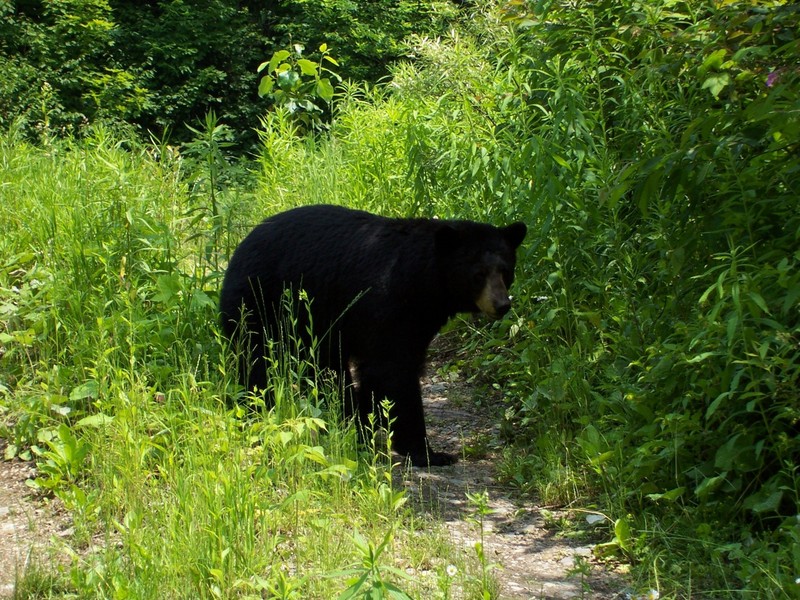
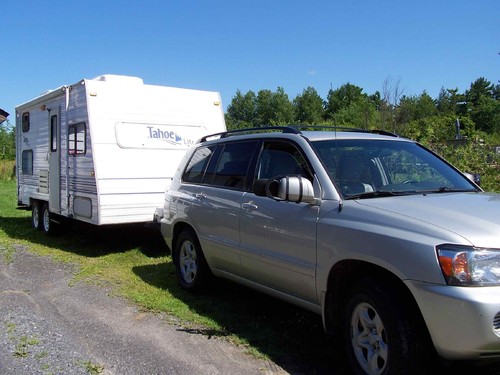
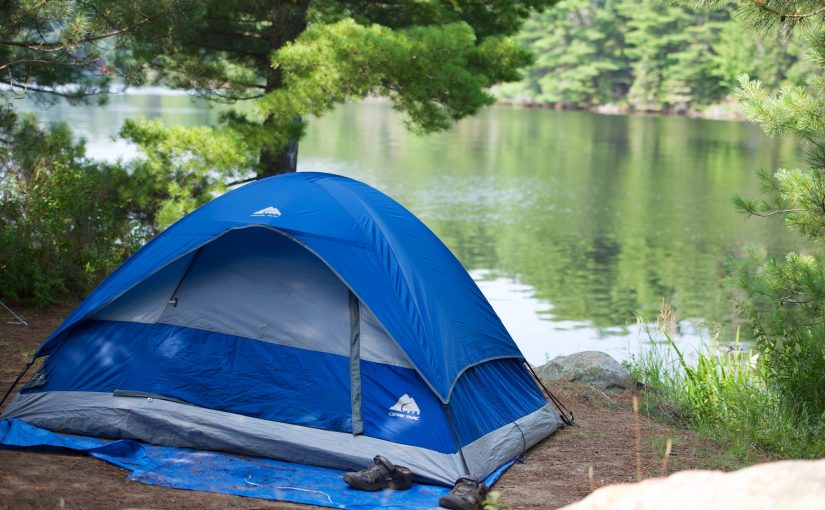

Please let your readers know that Atmosphere, part of the Sport Chek family, also sells bangers, flares and bear spray. Prices are usually far better than that of Bass Pro and Sail. Thanks!
Carry a Fox 40 pealess whistle with you – it’s light, can attach to your belt or to a lanyard, or simply carry it in your pocket. Fox 40 Sharx or Fox 40 Sonik Blast CMG are the best and loudest for outdoor use.
I think have a tidy campground is key. To expound on this, it is imperative to hang your food. Getting the food up above their sniffer zone is important. Even if the job is not done properly, the mere fact that the food is above their smelling zone will not attract them. I always walk with a big stick in bear country. I think just the site of a person with a long stick is enough for them to stay away. Great article and tips.
Hey Ted, thanks for the comments. You bring up some other good tips on camping in bear country which should have been included, but due to space constraints, never made the cut. You’re absolutely right that ‘announcing your presence’ will go a long way to avoiding a bad situation.
Have fun in the Great Outdoors!
The Outdoors Guy – Jeff Morrison
This article is highly inaccurate in overstating aggression in bears, and in claimnling, quite preposterously I’m afraid, that we should curl up into a ball when coming across a sow with cubs.
Agreed. Some good information amongst the fear mongering undertone.